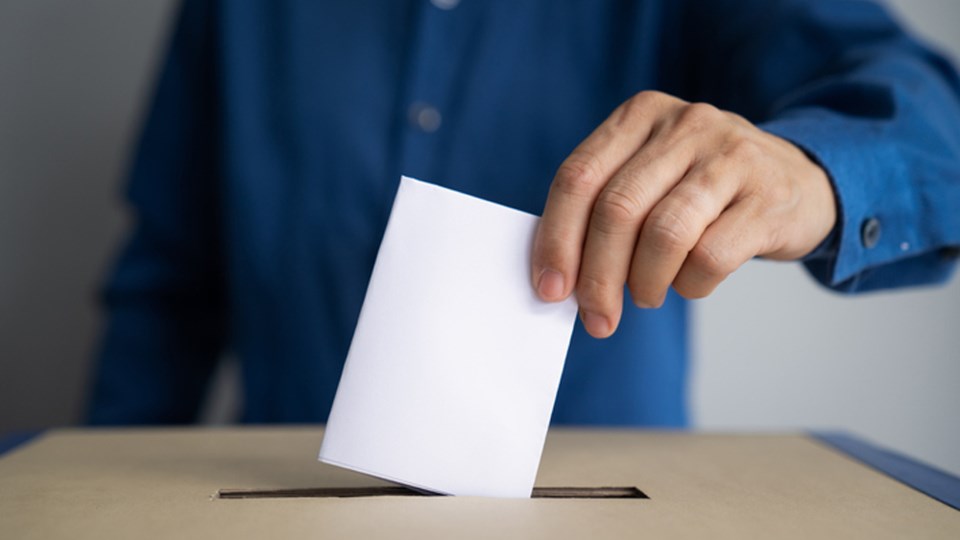In Metro Vancouver, one reason for the apparent disinterest of residents in municipal affairs is the absence of amalgamation. We have 21 different municipalities. In cities like Toronto or Montreal, a single mayor oversees a large area, commanding wide interest in what he or she says or does.
It is difficult for media outlets in Metro Vancouver to devote time to municipal stories that may not be of interest to a large proportion of viewers who live elsewhere. This may play a role in voters having a hard time remembering that municipal elections are happening. In 2018, only 39% of eligible municipal voters in Vancouver cast a ballot, slightly higher than in Surrey (33%) and Burnaby (32%). The lowest voter turnout in Metro Vancouver was shared by Coquitlam and the City of Langley, at just 25%.
One idea that has been discussed to boost participation is to explore granting the right to vote to more residents. When Research Co. and Glacier Media recently asked Metro Vancouverites about allowing Canadians aged 16 and 17 to participate in municipal elections, two in five (41%) were in favour and more than half (51%) were against. Adults aged 18 to 34 are more likely to trust teens to cast a ballot (51%) than their counterparts aged 35 to 54 (39%) and aged 55 and over (34%).
In stark contrast, 71% of Metro Vancouverites think permanent residents of Canada aged 18 and over should be allowed to vote in municipal elections, while only 22% are opposed to this idea. There is wide support for this proposal in Burnaby (56%), Surrey (72%), Vancouver (73%) and the remaining Metro Vancouver municipalities (77%).
These results are similar to what we found last year when we asked Canadians and Americans about voting rights in federal elections: majority support for the participation of legal immigrants and sizable opposition to lowering the voting age to 16 years.
In municipal elections across British Columbia, the figure of the non-residency property elector is still present. This guideline allows Canadian citizens aged 18 and over who own property in a specific municipality to cast a vote even if they do not reside on it.
Metro Vancouverites are not particularly thrilled with this dictum. Almost two-thirds (65%) agree that it is time to eliminate non-residency property electors, while 23% favour keeping this possibility. No group voices more animosity than residents aged 55 and over (74%), who usually boast higher levels of participation in municipal contests.
We have never allowed corporations to vote in a federal or provincial election, but they used to be able to cast ballots municipally until a law was repealed in 1993. There have been some seemingly elegant overtures recently, where business owners have called for the return of the corporate vote that was abandoned almost three decades ago.
Residents of Metro Vancouver are not thrilled. More than half (56%) reject giving businesses the ability to vote in municipal elections, while 31% think this would be a good idea. Majorities of residents of Burnaby (51%), Vancouver (54%), Surrey (56%) and the remaining municipalities across the region (63%) reject this notion.
As we get close to the actual start of municipal campaigns, housing is identified as the most important concern for Metro Vancouverites (31%), followed by COVID-19 (24%), property taxes (10%), climate change (7%) and drug overdoses (6%).
There are some significant fluctuations when the results in specific municipalities are analyzed. In Burnaby, housing is, by far, the prevalent concern (45%). In Surrey, crime is the most important issue for 12% of residents, well ahead of the regional average of 5%.
Across the entire region, about half of residents (49%) approve of the performance of their mayor, while one third (34%) disapprove and 17% are not sure. In Vancouver, 57% of residents are satisfied with the job Kennedy Stewart has done, up five points since January 2020. The numbers are stable for Burnaby Mayor Mike Hurley (51%, unchanged). In Surrey, the situation is drastically different. Only 30% of the city’s residents approve of the way Doug McCallum is handling his duties, down 20 points in almost two years. A majority of Surrey’s residents (54%) disapprove of his performance.
The results are similar when residents of these three major cities are asked about their incumbent mayors seeking a new term in office in 2022. Just under half of those in Burnaby and Vancouver (48% and 47% respectively) would give Hurley and Stewart four more years. In Surrey, practically three in five residents (59%) believe it is time for someone other than McCallum to be at the helm.
Mario Canseco is president of Research Co.
Results are based on an online study conducted from December 17 to December 19, 2021, among 1,200 adults in Metro Vancouver. The data has been statistically weighted according to Canadian census figures for age, gender and region. The margin of error, which measures sample variability, is plus or minus 2.8 percentage points, 19 times out of 20.




